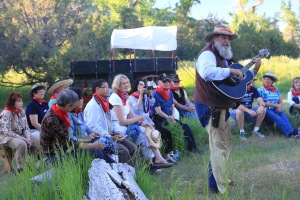It’s hard to imagine that we are already in the final days of December, another year having come and gone. When I reflect on the year that was, it is unambiguous that we are living in a dynamic, acceleratingly everchanging world. Within the dynamism, we are being forced to grasp new rules we could never have anticipated nor imagined a year ago.
So, what awaits us in 2024? To look forward, I like to begin by looking back.
After the moribund, endless, three-year span of the Covid pandemic, 2023 will be remembered as the first full year of recovery. In it we enjoyed growing confidence and excitement as ‘surge’ became the most frequently used term to describe the year’s travel world.
There are so many reasons to be looking up, and forward. But let’s not jump ahead of ourselves just yet. All around us we see change. And it is not only the great news within our great industry. Nor is it all positive. However, our industry remains fueled by hope, hard work, and most importantly, the need for human connection.
Looking back, the world faced a collision of diverse challenges. Economically, despite the world being reconnected as travel and trade return to a strong position, rising costs of essentials of living – food, fuel, and other fundamentals – have put pressure on disposable incomes and freedoms to spend.
Environmentally, we have seen extreme weather events, distinct evidence of the climate crisis, devastating communities forced to face the worst heatwaves, fires and floods they have ever seen in their lifetimes.
Politically we have seen hurt and hardship like not seen in decades. Two wars are raging on at this precise moment while other geo-political tensions continue to brew from East to West. With elections taking place in many countries in the new year – an estimated 4.4+ billion people going to the polls – we can only expect the noise to get louder, the rhetoric harder to digest, and the risks of separation greater.
Despite these very real, very raw challenges that we as the wider global community have faced, our industry continues to provide people with reasons to be hopeful, holding on to dreams, and onto one another. We see it all around us, and we can have confidence that we will continue to see it in the year ahead.
Still, while we can deservedly feel a sense of relief that recovery is well under way, there is no doubt that as leaders of the future of travel, it is essential that we evolve. We must continue to make clear, conscious decisions that fully honour the responsibility we all have in doing the right things, the right way, for the right reasons, right now.
What does this mean?
As an industry, we must recognise that as travel demand returned at rates that had us feeling proud of the resilience of our industry, we cannot deny the fact that the travel orbit caught the ecosystem of our industry flat footed in our ability to adequately service the revival. The short-sightedness of many in the industry – many critical links in keeping travellers across the world moving safely, swiftly and smoothly, along with all of their luggage – resulted in severe disappointment of both travellers and the industry alike. The learnings must be taken forward, for as confident as we may be in bookings returning across the globe, if the airlines are not flying, or airports not operating airbridges, or the trains not connecting, no one is moving. Add weather disruptions into the mix and the damage to movement and motivations is intensified.
As a business and as individuals, we need to evolve our recognition of how travellers wishes, wants, and also worries, have changed in this new world of travel. Ultimately, we must never forget this simple truth: we are them. We as travellers are relooking why, how, when, where and with whom we travel. How we respond to our customers and partners, how we care for our guests, must never lose the human touch, the reasons we travel.
So, rather than trends, these are the specific forces of market evolution that I feel we need to be conscious of. These are the things we are preparing for, all the while being equally ready to adapt to the unexpected deviations:
1. Exceptional Demand, Everywhere: The desire to travel and experience new destinations will grow stronger than ever for one simple reason: the appreciation of travel will continue to inspire people to reconnect. Having been starved of travel during recent years, the hunger to broaden their horizons, gain new perspectives, explore new cultures, create lasting memories, and foster a sense of personal growth and fulfillment will need to be fed. We already see it. The UNWTO recently reported that from January to September this year, international tourism recovered 87% of pre-pandemic levels, with 975 million tourists travelling internationally in the first nine months of 2023, a huge +38% over the same months of 2022. And recovery was everywhere. Europe recovered 94% of pre-pandemic visitors, Africa 92%, the Americas 88% and Asia and the Pacific 62% (recognising that Asia only fully reopened in late Q1/2023). With the whole world now travelling, momentum is set to continue, travellers working around challenges that the world may be facing.
Traditional Patterns Are a Thing of the Past: Where we go will change. The evidence is clear in a move in travel patterns, with traditional warm-season holiday seekers looking to cooler climates and different travel periods. This change represents not only a call to action for us to recognise, but a huge opportunity for us to leverage. Which is why we are acting by adjusting inventory based on shifting demands and leveraging our 100+ years of travel expertise to craft trips that go both to, and beyond, the iconic and uncover the soul of destinations, stretching travel periods to meet new travel times of the year attracting traveller interest. Whatever the time of year, wherever we may be, we continue to make meaningful local connections – staying true to our core purpose to MAKE TRAVEL MATTER™ .
2. Beyond The Hustle and Bustle: Travellers are increasingly seeking out unique and lesser-known destinations, moving away from overcrowded tourist hotspots to enjoy travels off the beaten path. Guests are looking for authentic and immersive travel experiences that enable them to get up close and personal with local communities and cultures, landscapes, and lifestyles. This speaks right to the heart of our business and brands.
3. AI Accelerating Travel Tech Intelligence: AI is not happening, it has happened. And we must embrace its power as a source for good, while at the same time, taming its usage to ensure it remains just that. It’s ability to understand individual preferences and behaviors is truly remarkable, elevating our ability to make a meaningful connections and real impact with, and for, travellers. While we are still in the early stages of the generative AI journey, I believe that this technology will be transformative, likening its impact on creativity to the internet’s revolution. Our fears will only be addressed by making friends with this new force of intel, recognising and activating its power to help us grow our brands, our business, and importantly, our relationships with our guests, our partners, and amongst ourselves.
4. Global Caring: We all know, and feel, how the climate crisis is having an impact on the places to which we most want to travel. As mentioned earlier, extreme weather events and their increased frequency and intensity is disrupting travel plans. We are seeing awareness of environmental issues continue to grow amongst our guests, with growing prioritisation of destinations that minimise the negative impact of global warming. TTC has always taken our responsibility to Mother Nature seriously, recognising over a decade ago the role that climate change & environmental factors are playing in the world. Our response: creation of the nonprofit foundation TreadRight back in 2008. Our How We Tread Right 5-year strategy with its 365-day year-round travel focus and a defined a road map for Net Zero by 2050 has been moving our guests beyond the the icons and deeper into the places we go, throughout the year, for years. At the heart of our efforts is ensuring travel is as good for the visited as the visitor. In doing so, all of our trips now include at least one MAKE TRAVEL MATTER™ experience that advances one or more of the United Nations Sustainable Development Goals. Vision, transparency, delivery – our ethos.
5. Near not Far: For all of the growth in international travel, domestic and regional travel continues to grow, lifting the baseline for destinations. The desire to get out and explore new frontiers, crossing borders, discovering new cultures and communities applies right at home as much as across the globe. This growing trend to discover our own backyards is vital to support local businesses and communities all year round, keeping the tourism economy and value chains active, creating new through-the-year habits with local travellers. The benefits, and opportunities, are immense, the avoidance of logistics of international travel aside.
6. Two To Not Overlook: Finally, there are two trends enjoying growth that, interestingly, can at times have one common bond, namely:
- Solo Travel: increased demand for people traveling on their own for various reasons, particularly women, and
- Workation / WFA (Work-From-Anywhere) Travel: once shy of showing personal time was being worked into work travel, employees and their employers are now encouraging combing work and play wherever in the world remote network connecting, and therefore working, is possible.
Ultimately, travellers are increasingly comfortable going solo as a planned holiday, or as an extension to work travel. Either alone, or combined, these two trends offer us great opportunity to attract travellers not needing friends or family alongside to fulfil their travel desires.
For all we can anticipate and wait to see, what I am sure of is that in 2024, travel and what we do will grow. There will however be unpredicted times, and unexpected trends. Our travel landscape will be more demanding; requiring us to frequently rebalance our energies and refocus our efforts. Which is why the spirit of flexibility and adaptability we all adopted in 2023 will continue to be a necessity for us, for travelers, and for the travel industry, as together we all navigate this now ever-changing travel landscape.
Whatever changes lie ahead, the constant remains that tourism can and needs to be a significant source of local revenue, stimulating economic growth and job creation. In a world that is becoming increasingly interconnected, travel plays a vital role in fostering global citizenship and promoting tolerance and empathy. And importantly, however and wherever tourism evolves, that it is done so responsibly. These are my givens.
And, as the twists and turns of 2024 unfold as a wonderful year to discover the world, the TTC community will ensure that travel continues to engender cultural exchange and understanding, enabling people from different backgrounds to come together, learn from one another, appreciate one another, and celebrate diversity and MAKE TRAVEL MATTER™ as a force for good, not just in 2024, but importantly for generations to come.









